Realms of Ruin Finally Solves A Serious Warhammer Game Issue
Do you wish to experience Chaos in a video game? It’s likely that you may meet Papa Nurgle in the near future. It’s quite simple to visualize Nurgle since, like in video games, their minions are hordes of infected zombies. Similarly, Daemonhunters toss bloated corpses at their players until they can no longer take it.
Don’t get me wrong, I adore these games—Daemonhunters in particular—but a man may get so many oozing pimples. Darktide is hinting to the presence of some non-Chaotic opponents soon, although it’s likely that your new adversaries will still be joined by Plague Ogryns and Poxwalkers. If all you were exposed to about the worlds of Warhammer was through its video game adaptations, you would be unaware that there are three other Chaos Gods. Perhaps you are familiar with Khorne, with his blood, skulls, battles, and even more skulls, but are you familiar with Tzeentch or Slaanesh?
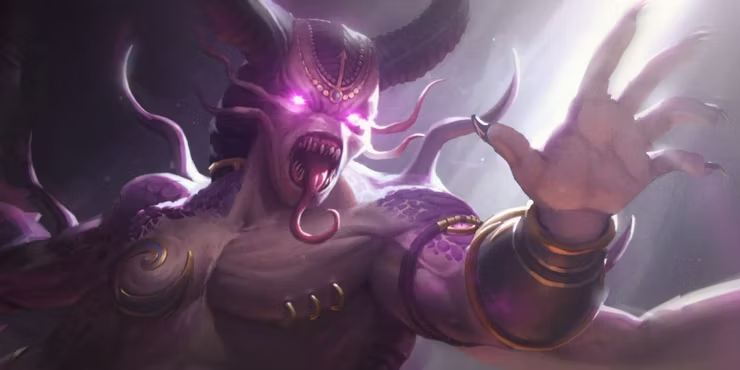
There’s a reason, although a bad one, why Slaanesh should be avoided. Slaanesh was traditionally considered the God of excess. In the 1990s, this was portrayed as pure passion, with every Daemonettes kit including unrestrained boobs thrust in your face. Video games like Warhammer want to keep that age rating as low as possible, thus they instantly remove any Slaaneshi concepts. But Slaanesh is about much more than just having sex.
The Prince of Pleasure enjoys everything ostentatious. Despite the fact that hedonism is central to their worldview, their vices are agnostic. Under Slaanesh’s protection, pride, excess, gluttony, and of course those sexual urges are all welcome. Just watch out—that umbrella most likely contains a shredded guardsman.
Recently, Games Workshop has begun experimenting with new models, such as the Slaaneshi. Consider the Infernal Enrapturess, who plays mesmerizing tunes on a harp fashioned from the stretched tendons of a poor soul that is probably still alive. Lords of Hubris, Pain, and Gluttony—each representing a sin—have been introduced in Age of Sigmar. If you want your flesh-rending daemons to be more kid-friendly, there is a vast array of non-sexual Slaaneshi alternatives available.
There is no such sexual deviance in Tzeentch. The God of cunning, fate, and magic is equally erratic and dishonest. They make the ideal antagonist in video games in many ways. Can you picture a roguelike in which, with every run, a Tzeentchian sorcerer or Lord of Change modifies the very nature of reality? Gee Dubs, please give me a call. That would be an amazing Silver Tower adaption.
The difficulty of Tzeentch is more of an issue than a concern for ratings. Players might find it challenging to follow all the turns and twists, and coding the deceit and deception could be challenging. For both developers and players, the sheer amount of alternatives accessible may become overwhelming if each path could be a trap, mirror, or other untruth.
But Age of Sigmar: Realms of Ruin is taking that issue head-on, and later this year, we’ll witness the unleashing of Tzeentch’s soldiers on the battlefield. The fact that developer Frontier Developments is going above and beyond and expressing affection to other Chaos deities makes me very happy. I doubt I could have accepted another Nurgle match.
At least during the multiplayer mode of the game, Realms of Ruin probably won’t be as cunning. It will focus primarily on casting spells, but perhaps its narrative equivalent can provide more. Throughout the entire campaign, it’s possible that the Weaver of Destinies is manipulating events, leading our courageous group of Stormcast Eternals into pointless battles against far more powerful adversaries.
My first demo of Realms of Ruin made me realize how well-made the single-player mode was, with gorgeous cutscenes and fully voice-acted characters to match the hectic combat I had anticipated. I’m even more eager to plunge in because of the recently discovered potential of Tzeentchian treachery. The game pulled off the impossible feat of making Stormcast engaging, and I’m eager to see how it will use fate to create a complex web of deceitful drama.




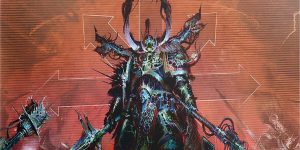

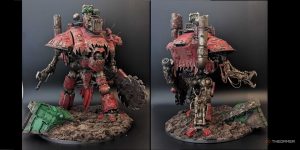
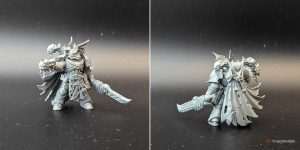
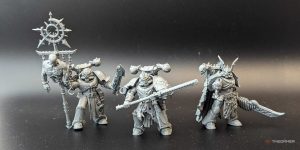
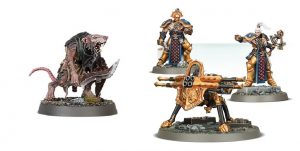




Post Comment